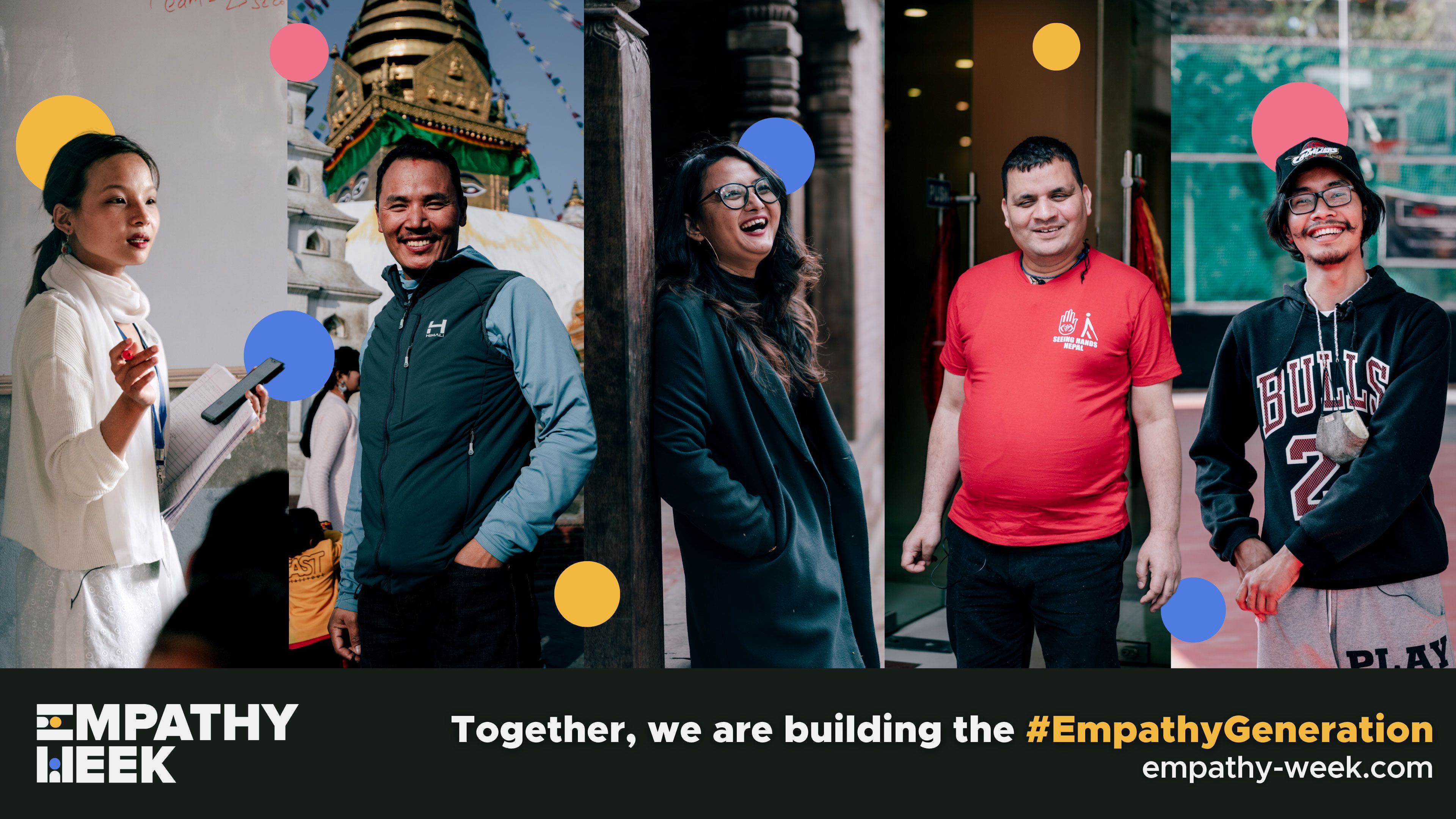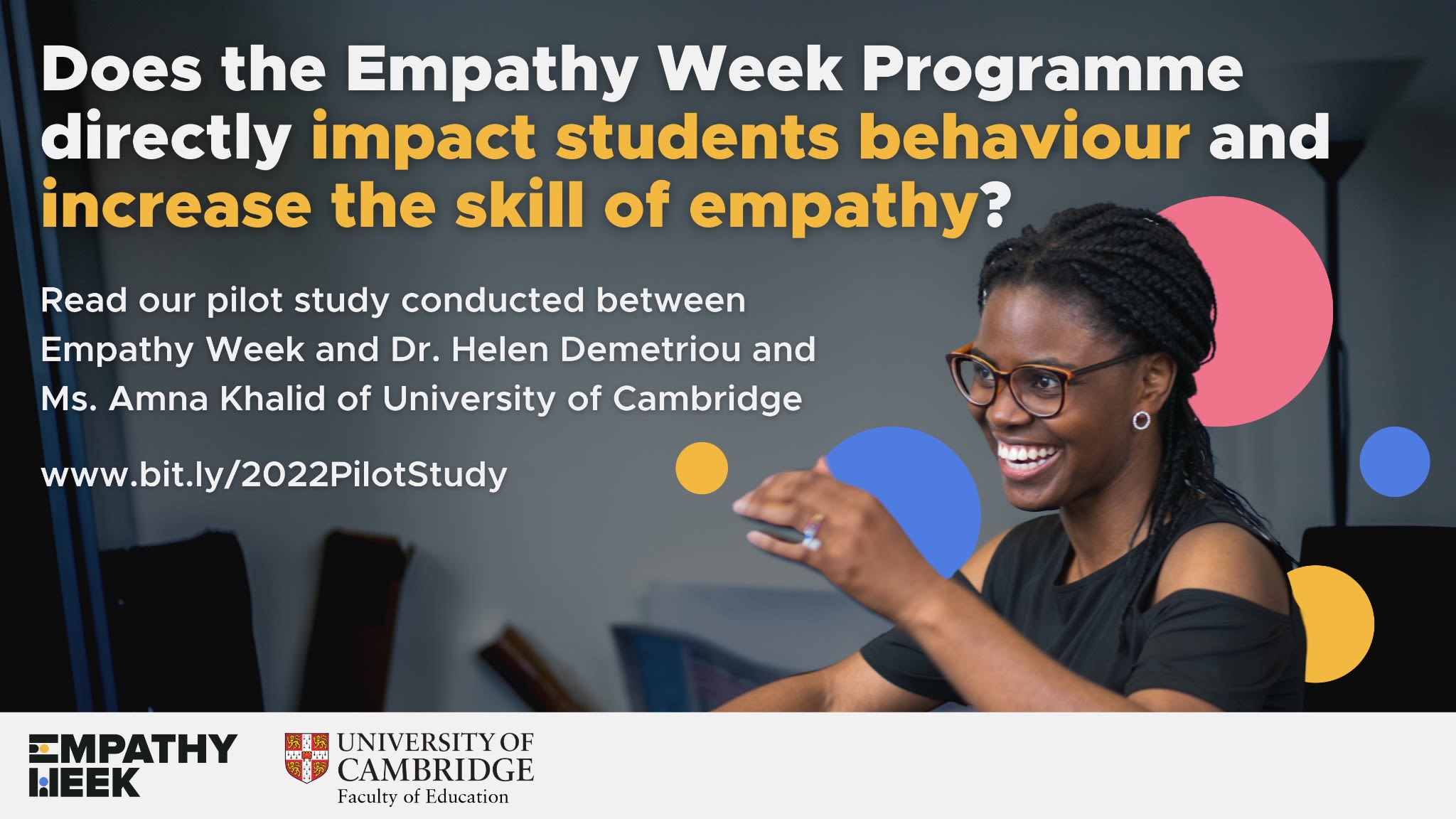

One week of empathy lessons may significantly improve emotional awareness

An empathy education programme is being offered to schools, following a pilot study which found that just one week of 30-minute lessons and films significantly improved pupils’ understanding of themselves and others.
The ‘Empathy Week’ programme is aimed at students aged five to 18. It uses films and learning resources to build empathy, defining this as: “The skill to understand another person and make space for someone to reveal their authentic self while reserving judgement”.
In a small, indicative study commissioned by Empathy Week, researchers at the University of Cambridge found that after one week of these lessons students were more responsive to others’ feelings, more interested in other people, and had better self-esteem.
Before the course, for example, 34% of children agreed with the statement: “I don’t think I have anything in common with people who live in different countries,” but after, this percentage fell to 26%. Similarly, the percentage of students interested in learning about other people’s lives increased from 51% to 67%. These shifts in attitude were recorded both a few weeks after the course, and three months later.
Empathy Week itself begins on 27 February and is open to all schools across the world, who can sign up at: https://www.empathy-week.com/.
Initiatives like this could have an amazing impact on the overall wellbeing of children.
Ed Kirwan, Founder of Empathy Week, said: “These are just initial findings but they give us confidence that the programme is working, which matches the amazing feedback we’ve heard from teachers. Even limited exposure to empathy lessons seems to increase young people’s ability to understand before acting and to connect with others. There is now a greater focus on social and emotional skills development in students and its ability to increase wellbeing - these findings are exciting and show that interventions such as Empathy Week can make a significant contribution.”
Amna Hamza, a doctoral researcher at the Faculty of Education, University of Cambridge, who led the study, said: “The results show the immense potential of empathy education not only for empathy development, but to make schools even more supportive and inclusive. Initiatives like this could have an amazing impact on the overall wellbeing of children.”

Empathy Week is a global schools programme founded by Kirwan, a former teacher turned filmmaker, in 2020, and is now supported by a team of former teachers. It is free to state schools and has been taken up in over 40 countries.
During the week, students are shown films about people with different lives and experiences and encouraged to reflect on the subject matter, covering topics such as the relationship between thoughts, feelings and judgements; or how to hold discussions about difficult subjects in a non-judgemental way.
Schools can then participate in additional stages of the programme, in which students develop empathy further and take part in an ‘Empathy Action Project’, in which they make a video which showcases their work tackling a specific social issue.
Empathy is not just something we have; it’s a teachable skill.
Developing children’s empathy through education is seen as one potential way to address widespread concerns about the emotional health and wellbeing of young people. Recent NHS data, for example, show that in 2022 almost one in five children aged seven to 16 had a probable mental health disorder.
Although it is often misconstrued as innate, research suggests empathy can be taught. A 2021 Cambridge study, for example, successfully trialled an intervention cultivating empathy in design and technology students, which also improved their creativity. It was co-authored by Dr Helen Demetriou, who was also involved in the research for Empathy Week.
In the new study, Hamza and Demetriou surveyed 50 pupils at two primary schools in London and Middlesborough, who participated in a week of half-hour lessons based on the course. The students were asked about their feelings towards others and themselves before the course, four to eight weeks later, and 13 to 14 weeks later. The data this provided were combined with qualitative evidence from interviews with the children and their teachers, as well as feedback from staff at schools in other countries that had participated in Empathy Week.
Even a single week of empathy lessons appeared to improve the children’s compassion, self-esteem, and their ability to find common ground with others. After four weeks, for example, the percentage who agreed with the statement: “When I hear about problems on the news, I feel bad for the people affected” rose from 79% to 88%, and the percentage who agreed with the statement: “I am proud of myself” from 74% to 92%. The number of students who said they became annoyed with themselves when they made mistakes fell from 79% to 64%.
In interviews, students displayed a deeper appreciation of the need to understand and engage with other people’s feelings, and the importance of believing in themselves. When asked about their takeaways from the course, they responded with comments such as: “Everyone is different, and that’s a good thing,” and: “Compared to some people, I am very lucky”.
Empathy Week 2023 will use films which follow the lives of five people in Nepal. This year’s course will be used as the basis of a more in-depth study with more schools, to assess the short- and long-term impact on student wellbeing, behaviour and achievement, as well as opportunities to incorporate empathy education into the curriculum.
“Empathy is not just something we have; it’s a teachable skill,” Demetriou said. “It enables young people to understand others better and speak more openly about their own feelings. The strong relationships this enables are central to academic success. In order to learn well, students also have to be well.”
Images in this story kindly provided by Empathy Week.